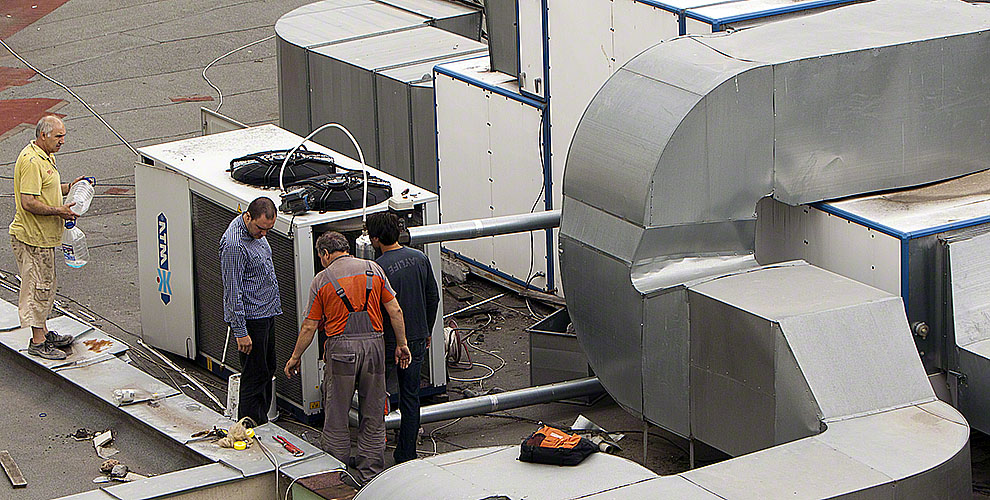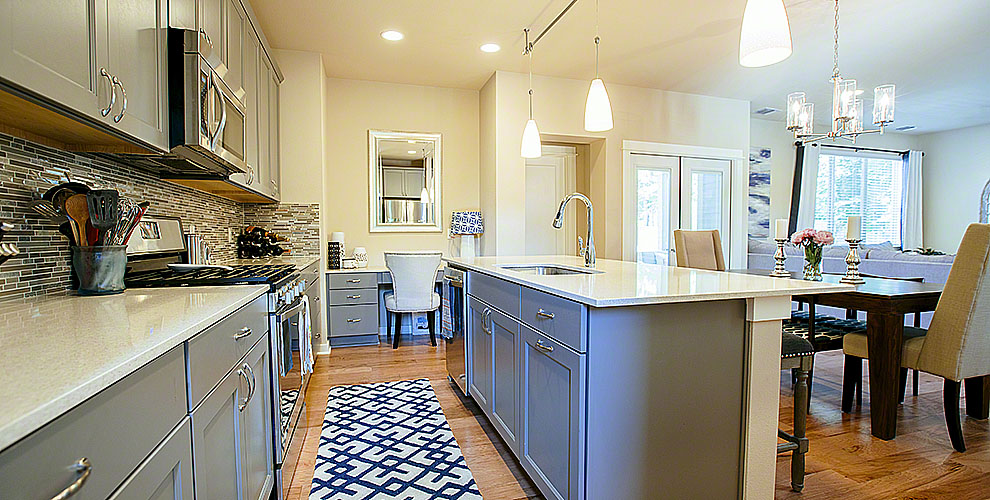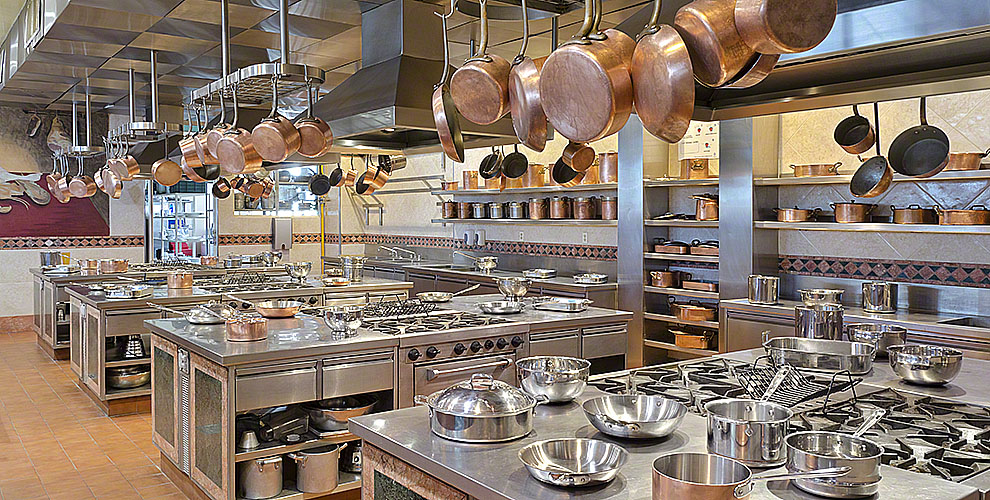A commercial HVAC system is designed to keep the interiors of commercial buildings comfortable by either cooling or heating. These units are mostly installed in hospitals, restaurants, and many other spaces. Although commercial HVAC units tend to be rough and tough, they are electronic appliances at the end of the day. This means they can run into problems like other commercial appliances and need to be fixed. One of the most common problems related to commercial HVACs is the unit failing to blow cold air. Let’s take a look at the causes and how to fix them. Some of these solutions require you to contact a commercial AC repair service.
Dirty Or Clogged Air Filters
If your commercial HVAC is not blowing cool air, you should first check the basics rather than diving into complicated issues. For instance, the air filters are designed to trap contaminants in the air before it is circulated inside the building. With time, these filters tend to become dirty and clogged.
Clogged filters make it difficult for the HVAC units to breathe and circulate air. As a result, the unit consumes more power to compensate for the loss of cool air. This raises the electricity bills and also the temperature of the unit itself.
The only way to make sure the filters remain clean at all times is by performing frequent inspections and maintenance. Fortunately, cleaning the filters is quite easy, as all you need to do is consult the user manual, remove the filters, and wash them.
If possible, try contacting the manufacturer or a local expert to schedule routine inspections and maintenance. Installing high-quality air filters and keeping them will also improve the indoor air quality of your commercial building.
Low Refrigerant Level
Every commercial HVAC unit comes with refrigerant gas that is used to produce both cool and warm air. This refrigerant is stored in a special container inside the HVAC unit to prevent it from leaking. With time, as the unit gets older or due to external factors, this gas can leak and make it difficult for the unit to produce cold air.
Components of the HVAC unit, such as the compressor, are also dependent on the refrigerant for their functioning. If the refrigerant level happens to be low, the compressor will trip more frequently and eventually heat up and give up as well.
The problem with refrigerant leakages is that they can be so minor at times that it becomes difficult to spot them. A tell-tale sign that says refrigerant level is low is if the HVAC unit is not blowing cool air or tripping more frequently.
In such a case, you should consult an expert immediately and shut down the unit, as it can result in permanent and expensive repairs.
Dirty Coils
A commercial HVAC unit is made of ducts and an outdoor unit. The outdoor unit houses the essential components, such as the compressor and coils. The evaporator and condenser coils are designed to disperse heat produced as a byproduct of the cooling process.
Since these coils are located inside the outdoor unit, it is fairly easy for them to be covered with layers of dirt and dust over time. If you live in a region that experiences extreme weather conditions, mostly throughout the year, you will need to care for the coils more often.
To access the coils, you will need to remove the cover of the outdoor unit or rooftop unit. Use a cleaning agent, a soft brush, and a clean, wet cloth to wipe away the accumulations. Make sure to follow the instructions mentioned on the back of the cleaning agent or hire an expert for commercial AC maintenance.
Clogged Ducts
Clogged ducts is another reason why your commercial HVAC unit may not be cooling anymore. Commercial HVAC units are connected to duct networks that help circulate the cool air in the entire building. These ducts can also become clogged with layers of dirt and dust if ignored for a long period of time.
On the other hand, birds, mice, and other unwanted guests tend to also take up accommodation during the winter season. As a result, they might chew through the ducts or try to make the space a bit more comfortable for their offspring, which makes cool air circulation difficult.
In this case, the problem is with the ductwork, not the HVAC unit. You will need to grab a flashlight and inspect it for any cracks, accumulations, or damage. Covering minor cracks or damages with duct tape is going to fix the issue, but if they are relatively bigger, you might need to call in HVAC repair services Huntington to fix them properly.
Thermostat Problems
Thermostat problems are not that common in new HVAC units, but not impossible. Older HVAC units with outdated thermostats may find it difficult to maintain the temperature due to calibration and other issues. If the thermostat of your commercial HVAC unit runs on batteries, consider replacing them.
On the other hand, if the HVAC unit happens to be new, you might want to check the calibration of the thermostat. For this, consult an expert. It might be that your HVAC unit was recently serviced and the expert forgot to calibrate the thermostat of the zone that is facing cooling issues.
Faulty Compressor
A compressor is vital component of an HVAC unit. Even though compressors are able to last years before needing a replacement, leaks and lack of maintenance can end their life a lot sooner than intended.
If the compressor is facing issues, your HVAC unit will constantly trip and not produce cool air. If the HVAC unit is under warranty, you will have to consult the manufacturer for replacement. But if the unit happens to be old, you might want to consider replacing the entire unit.
Spending on expensive repairs and replacements of an older unit won’t help you save money. Instead, save it and invest it in a new unit.
Lack Of Maintenance
Commercial HVAC units are hardworking machines. They work 24/7 to keep commercial buildings cool and livable. That said, it is important for these units to receive proper care to extend their lifespan and prevent complications.
Depending on the usage frequency, you should get the unit maintained at least twice a year. Professional maintenance includes inspecting the unit thoroughly for any potential repairs and replacements.
This allows the experts to fix the issue on the spot without the unit breaking down in the middle of a busy day. So, instead of considering it an expense, you should take it as an investment to keep future problems at bay.
Conclusion
Commercial HVAC not blowing cold air is not something that should have you panicking. If you are aware or familiar with the troubleshooting tips, you should be able to get the unit running back to normal. Make sure to keep the tips mentioned above in mind and consult commercial HVAC companies Stony Brook for annual maintenance to ensure smooth operation.


